ORGANIZERS
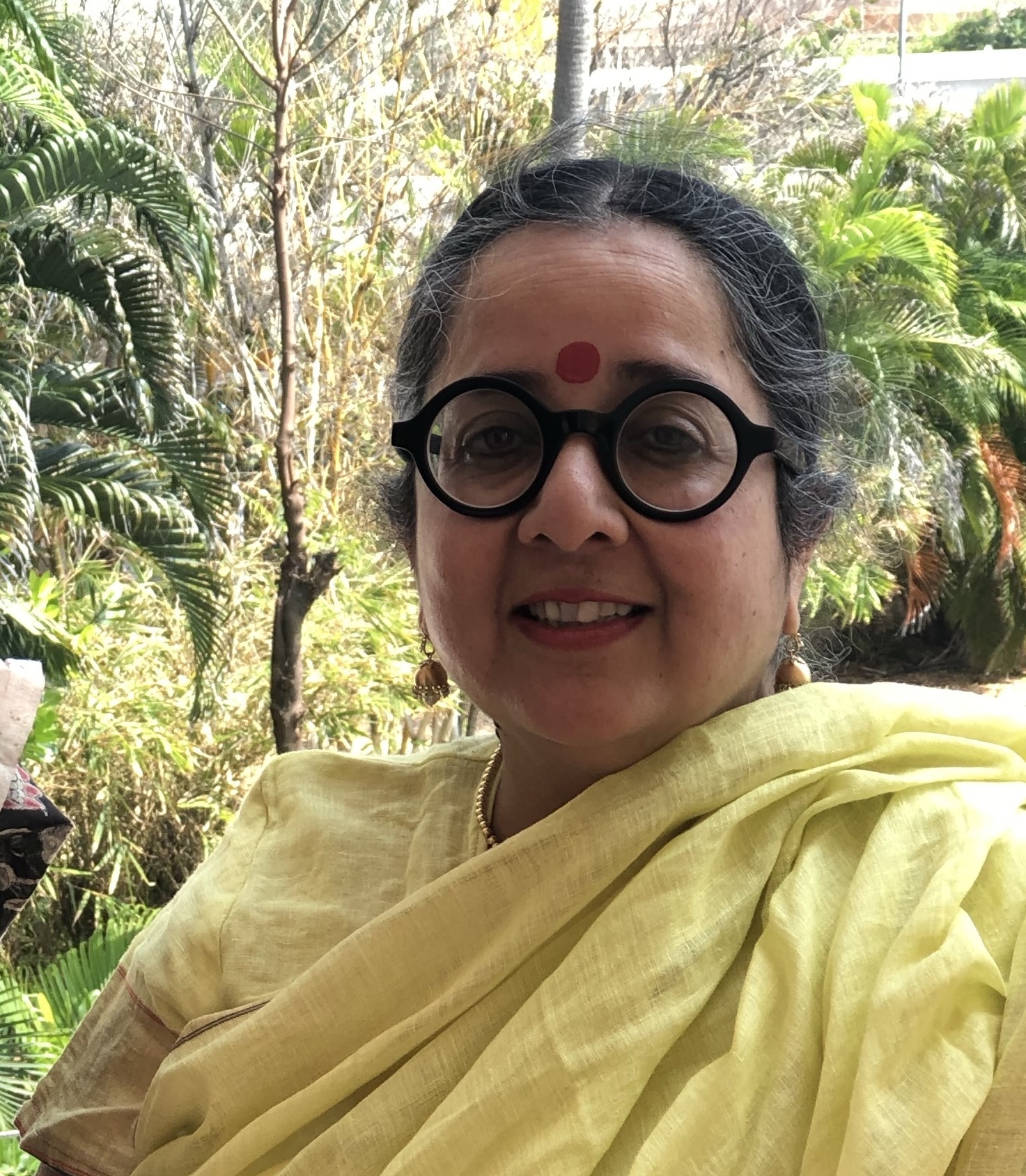
Srilata Raman, University of Toronto
Srilata Raman is Associate Professor of Hinduism at the University of Toronto and is a textualist who works on medieval South Asian/South Indian religion particularly the Śrīvaiṣṇava tradition and the theological developments within it between the 12-14th centuries, devotionalism (bhakti), historiography and hagiography and religious movements in early colonial India from the South. Her areas of interest are Tamil and Sanskrit intellectual formations from the late medieval to the early colonial period including the emergence of nineteenth century socio-religious reform and colonial sainthood. She is currently in the process of completing a book manuscript on Ramalinga Swamigal, a 19th century poet-saint of the Tamil region whose writings can be located at the cusp of both premodern and early modern Tamil Śaivism and, hence, as significant to the history of the transformation of Tamil religion in and through the colonial period.
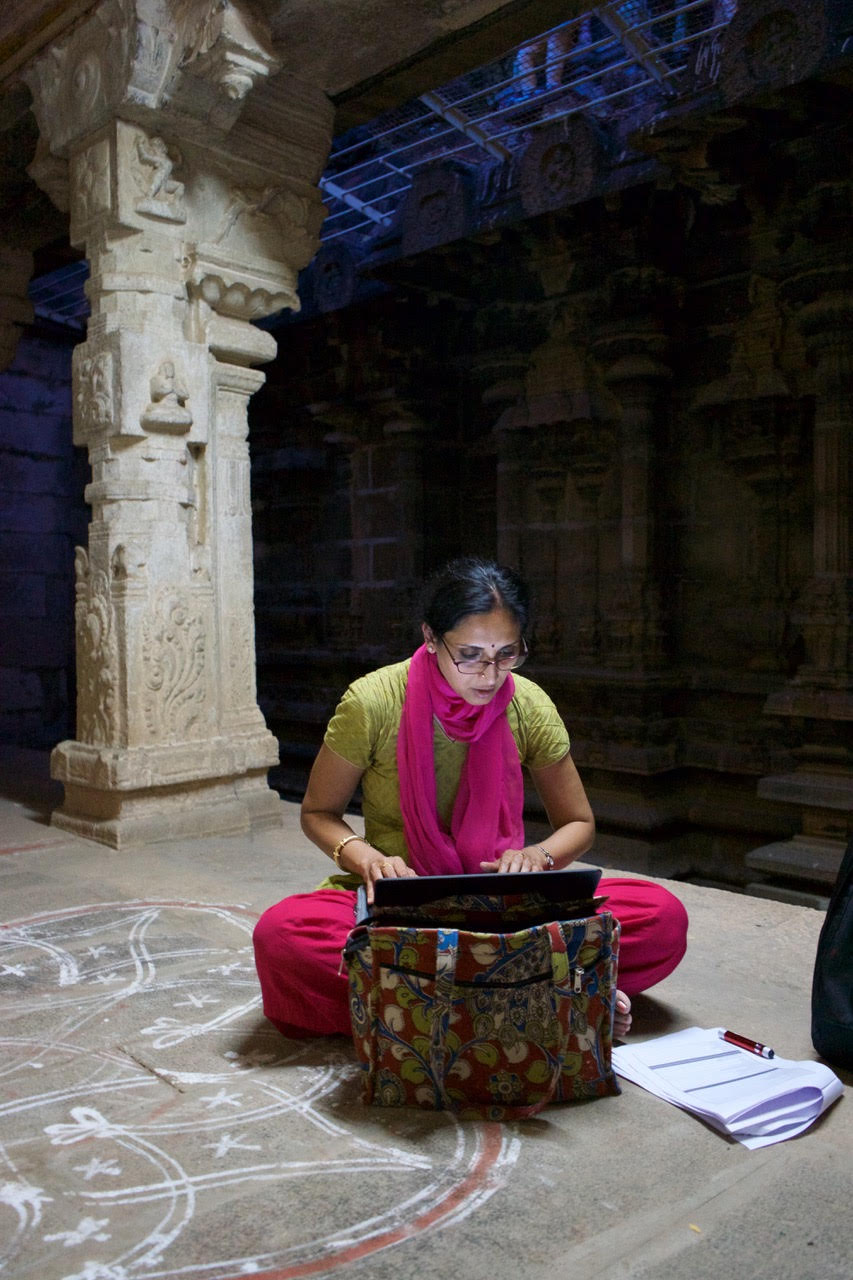
Archana Venkatesan, University of California, Davis
Archana Venkatesan is Associate Professor of Comparative Literature and Religious Studies at the University of California, Davis. Her research interests are in the intersection of text, image and performance in South India. Her books include The Secret Garland: Āṇṭāḷ’s Tiruppāvai and Nācciyār Tirumoḻi (2010), A Hundred Measures of Time: Nammāḻvār’s Tiruviruttam (2014), Endless Song: Nammāḻvār’s Tiruvāymoḻi (2020), and with Crispin Branfoot, In Andal’s Garden: Art, Ornament and Devotion in Srivilliputtur (2015). She is currently working on a project on nine interconnected Viṣṇu temples in Tamil Nadu known as the Nava Tirupati.
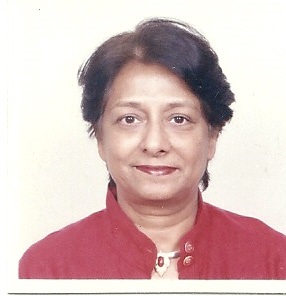
Rashmi Poddar, Jnanapravaha
Rashmi Poddar, Director, Jnanapravaha Mumbai (JPM) was awarded a doctorate for her thesis Rasa and Ananda - A Visual Discovery by the University of Mumbai in 1997. Under her guidance, JPM is considered a leading para-academic institute with several seminal courses in the fields of Aesthetics and Critical Theory. The nearly 300 public programmes testify to her inter-disciplinary approach of melding art history and aesthetics with archaeology, architecture, anthropology, literature and philosophy. She has taught and lectured nationally and internationally at universities and museums. She serves on several boards such as World Monuments Fund India, Asia Society India Centre, Mehli Mehta Music Foundation and Maharana of Mewar Charitable Foundation.
SPEAKERS
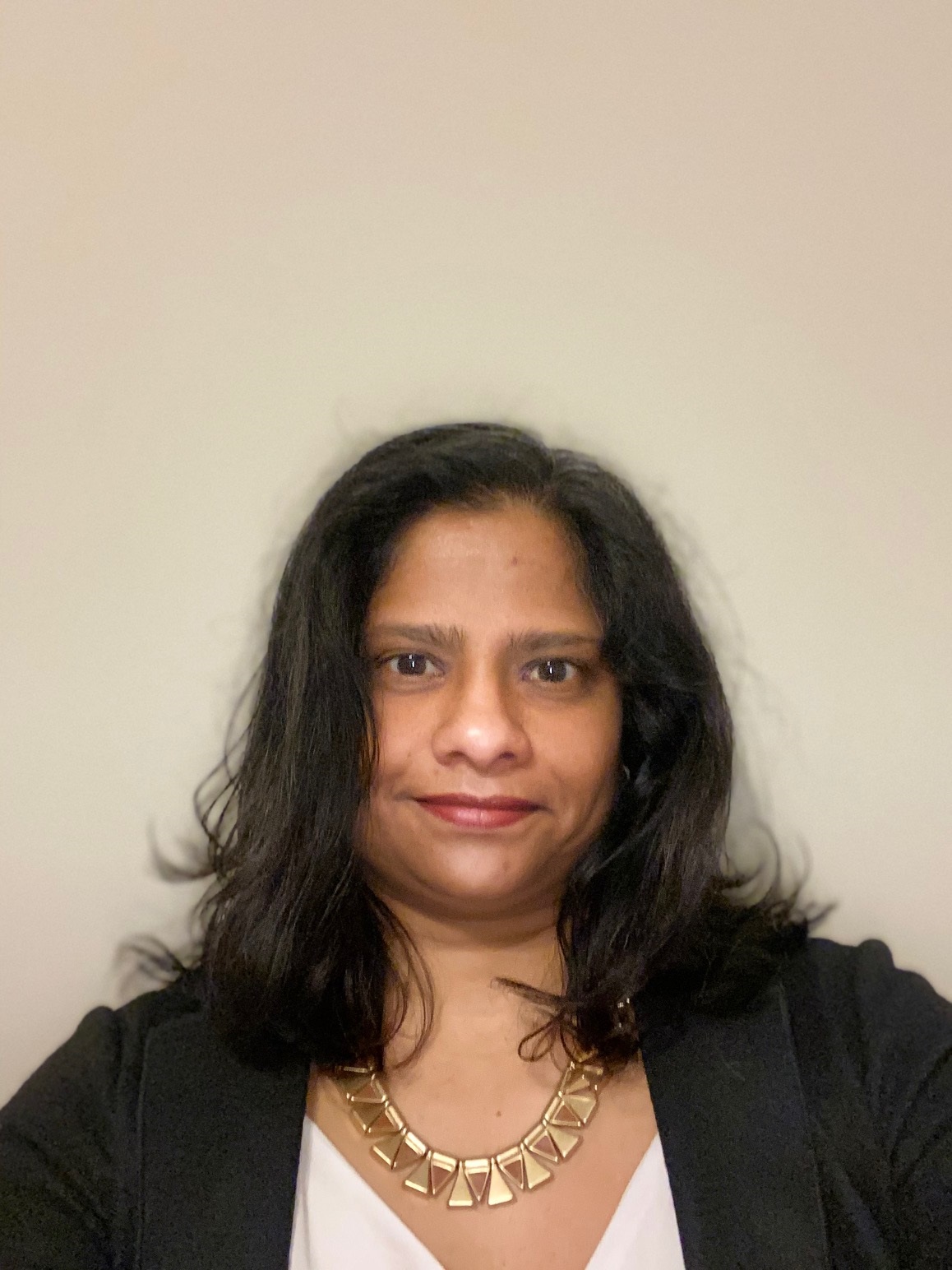
Sucharita Adluri, Cleveland State University
Sucharita Adluri holds a Ph.D. in Religious Studies from the University of Pennsylvania. Her areas of research include Sanskrit commentarial traditions, Indian Philosophy, and the social and religious history of devotional traditions of South India. In addition to her recent monograph, "Textual Authority in Classical Indian Thought", she is widely published in international journals such as the Journal of Hindu Studies, the Journal of Indian Philosophy, and South Asian Studies. As Associate Professor of Comparative Religion, she currently teaches Asian religions at Cleveland State University.
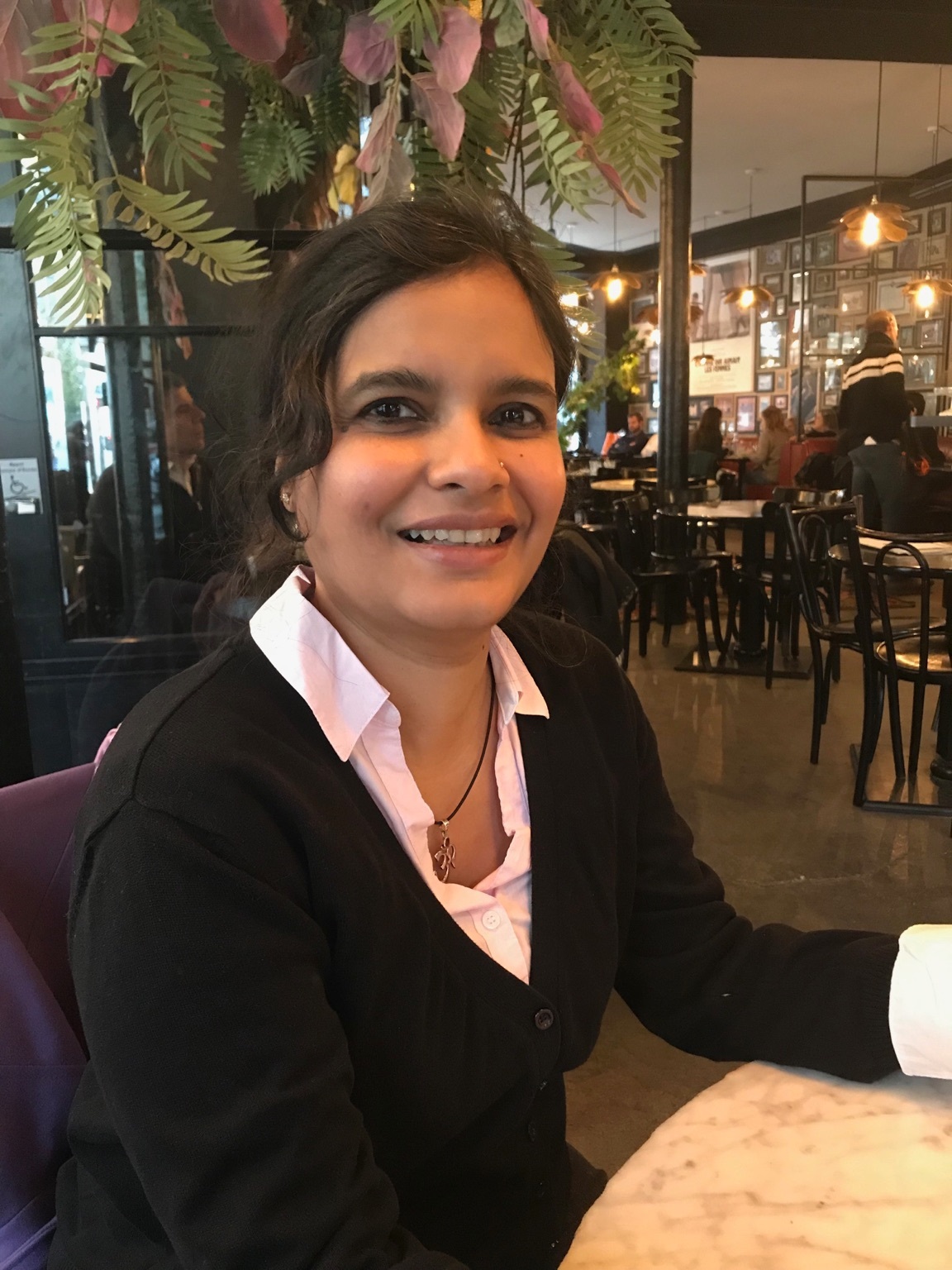
Suganya Anandakichenin, University of Hamburg
Suganya Anandakichenin did her PhD at the Universität Hamburg on Kulacēkara Āḻvār’s Perumāḷ Tirumoḻi. She published a philological translation of this work along with that of the whole medieval commentary in Manipravalam by Periyavāccāṉ Piḷḷai in 2018. She currently works as a postdoctoral fellow at the SFB 950, Centre for the Studies of Manuscript Cultures, Universität Hamburg. Her research interests include Tamil bhakti poetry, medieval Śrīvaiṣṇava writings in Manipravalam, commentary traditions in India, Tamil-Sanskrit interactions, and the transmission of texts via manuscripts in South India.
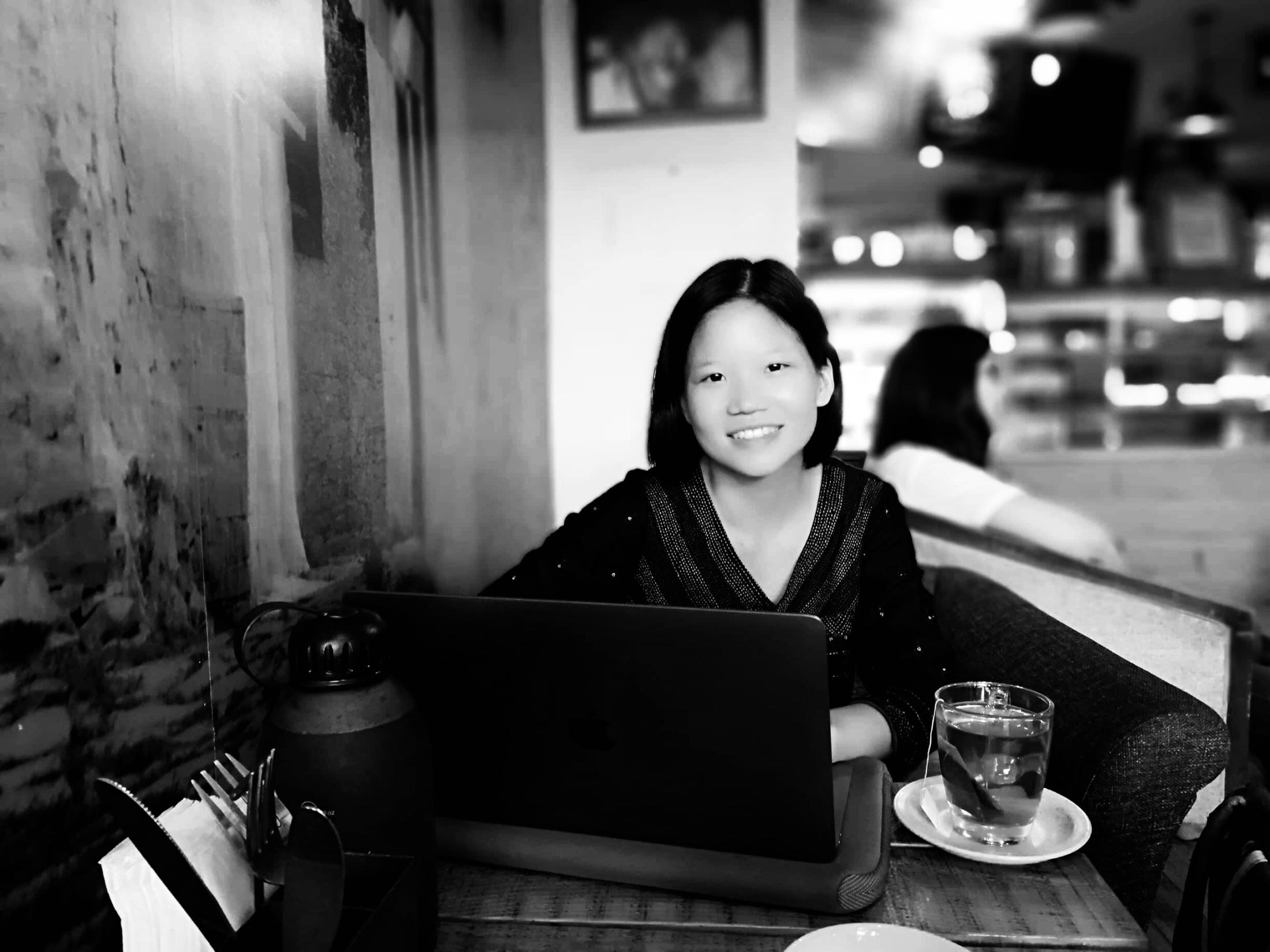
Manasicha Akepiyapornchai, Cornell University
Manasicha Akepiyapornchai received her bachelor’s degree in Pali and Sanskrit from the Faculty of Arts, Chulalongkorn University, Thailand, in 2014. She received her master’s degree in South Asian Studies from Cornell University, USA, in 2016. Her thesis is titled “Vedāntadeśika’s Interpretation of Rāmānuja’s Prapatti: A Study based on the Nikṣeparakṣā.” She is pursuing a doctoral degree in Asian Literature, Religion, and Culture from the Department of Asian Studies, Cornell University. Her project, under the supervision of Lawrence J. McCrea, focuses on the soteriological development of the Śrīvaiṣṇavas’ doctrine of self-surrender (prapatti). She is expecting to graduate in May 2022.
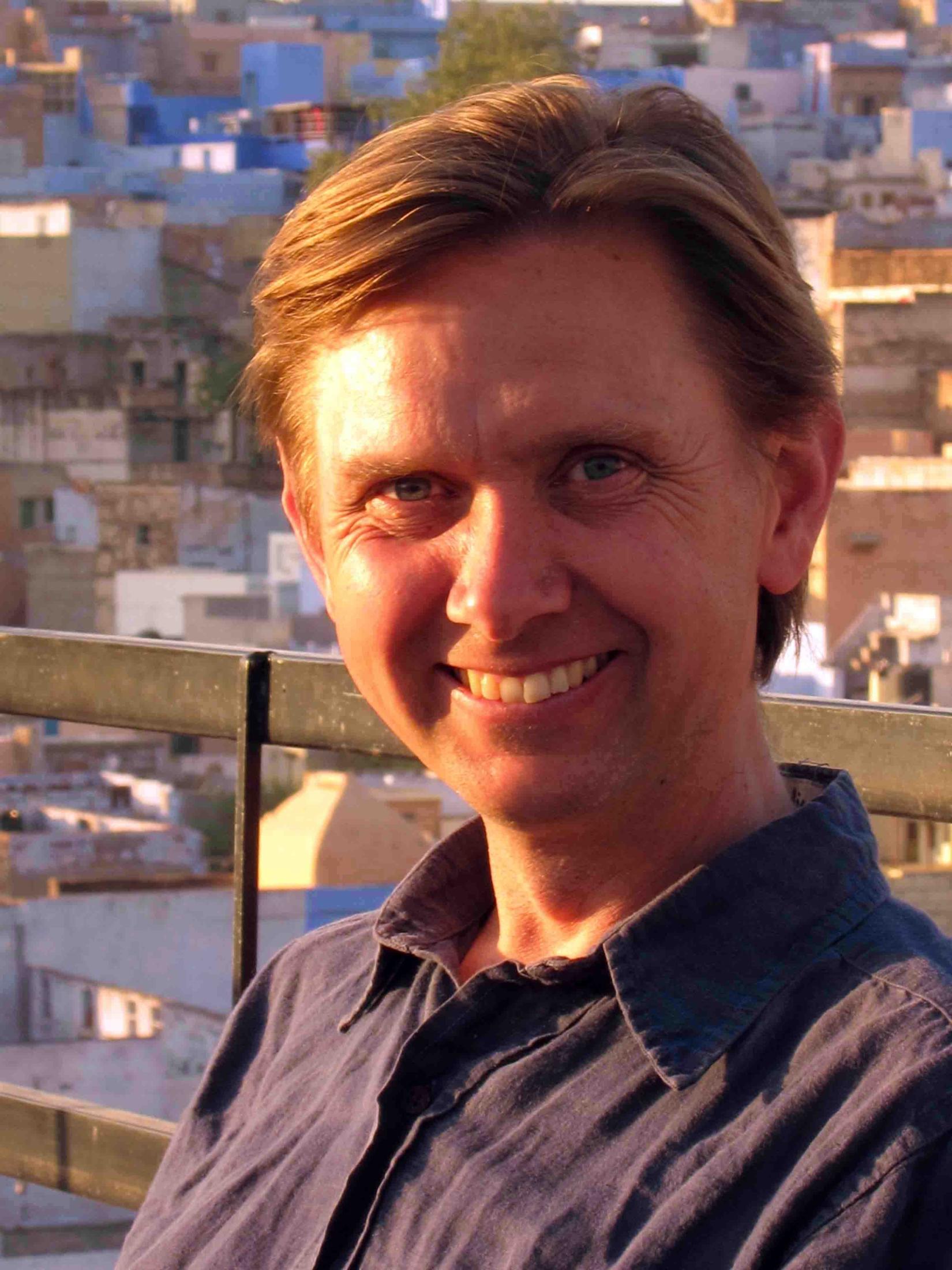
Crispin Branfoot, SOAS, London
Crispin Branfoot is Reader in the History of South Asian art and archaeology at SOAS, University of London. He is an art historian with a particular interest in the temple architecture and sculpture of Tamil south India from the 15th to 20th centuries. His books include Gods on the Move: architecture and ritual in the south Indian temple (2007) and, with Archana Venkatesan, In Andal’s Garden: art, ornament and devotion in Srvilliputtur (2015).
Francis X.Clooney
Francis X. Clooney, S.J., is the Parkman Professor of Divinity and Professor of Comparative Theology. His primary areas of Indological scholarship are theological commentarial writings in the Sanskrit and Tamil traditions of Hindu India. Clooney is the author of numerous articles and books, including Thinking Ritually: Retrieving the Purva Mimamsa of Jaimini (Vienna, 1990), Theology after Vedanta: An Experiment in Comparative Theology (State University of New York Press, 1993), Beyond Compare: St. Francis de Sales and Sri Vedanta Desika on Loving Surrender to God (Georgetown University Press, 2008), The Truth, the Way, the Life: Christian Commentary on the Three Holy Mantras of the Shrivaisnava Hindus (Peeters Publishing, 2008), Comparative Theology: Deep Learning across Religious Borders (Wiley-Blackwell, 2010), and His Hiding Place Is Darkness: A Hindu-Catholic Theopoetics of Divine Absence (Stanford University Press, 2013).

Elisa Freschi, University of Toronto
Elisa Freschi has worked on South-Asian Philosophy and more in general on comparative philosophy, epistemology, philosophy of religion, philosophy of language, deontic logic and on the re-use of texts in South-Asian philosophy (about which she has edited several volumes in 2015 and 2017). She is a convinced upholder of reading Sanskrit philosophical texts within their history and understanding them through a philosophical approach. After her monographs on Prābhākara Mīmāṃsā (Brill 2012) and on the intersection of Grammar, Ritual texts and Mīmāṃsā (P. Lang 2013), she is currently working on the reformulation of the concept of God within Viśiṣṭādvaita Vedānta.
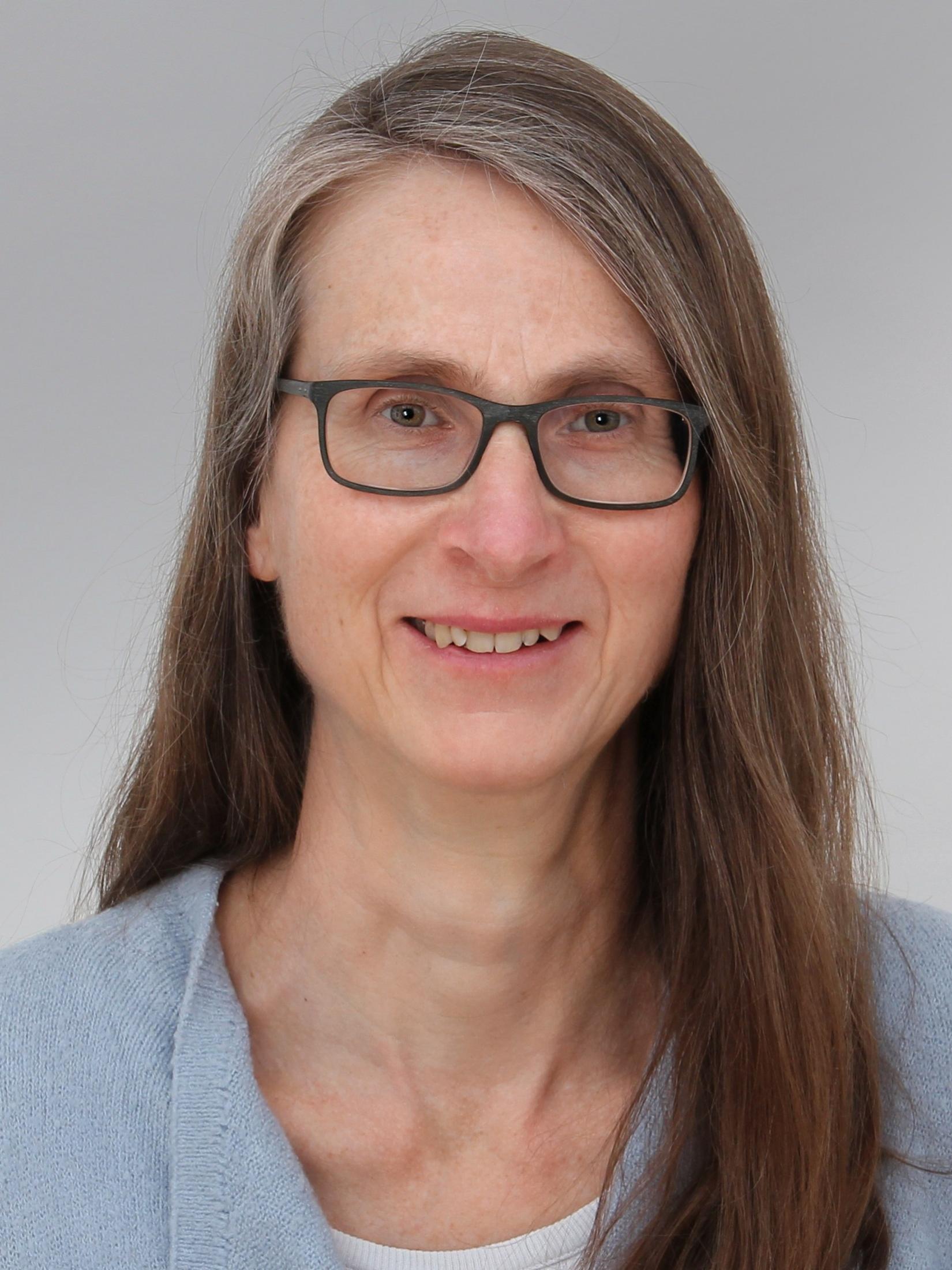
Marion Rastelli, University of Vienna
Marion Rastelli is a Sanskritist. She works as a senior researcher and deputy director at the Institute for the Cultural and Intellectual History of Asia of the Austrian Academy of Sciences, and also teaches at the Institute for South Asian, Tibetan and Buddhist Studies of the University of Vienna. Her main field of research is the Vaiṣṇava tradition of Pāñcarātra in all its aspects, including teachings, rituals and historical development. She is co-editor of the renowned Tāntrikābhidhānakośa, a dictionary of technical terms from Hindu Tantric literature.
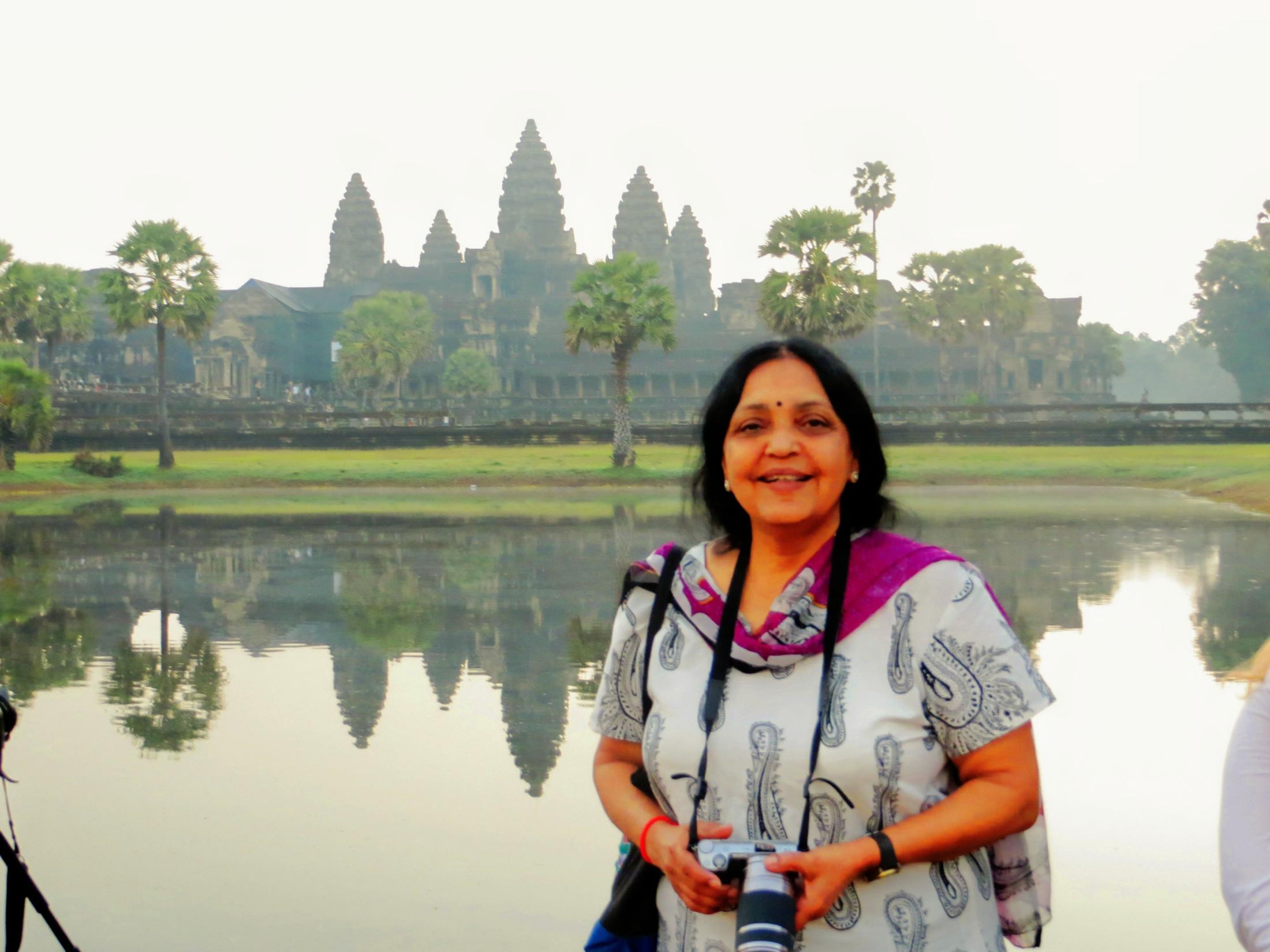
Vasudha Narayanan, University of Florida
Vasudha Narayanan is Distinguished Professor, Department of Religion, at the University of Florida and a past President of the American Academy of Religion. She is the author or editor of seven books and numerous articles, chapters in books, and encyclopedia entries. In addition, she is also the associate editor of the six-volume Brill’s Encyclopedia of Hinduism. Her research has been supported by several institutions, including the Centre for Khmer Studies, the American Council of Learned Societies, National Endowment for the Humanities, the John Simon Guggenheim Foundation, the American Institute of Indian Studies/ Smithsonian, and the Social Science Research Council.

Leslie Orr, Concordia University
Leslie C. Orr is a Professor in the Department of Religions and Cultures at Concordia University in Montréal, Québec, Canada, where she teaches in the areas of South Asian religions and women and religion. Following the publication of her book Donors, Devotees and Daughters of God: Temple Women in Medieval Tamilnadu (New York: Oxford University Press, 2000), she has continued to work and publish on the history of women’s lives in South India. Other research has been oriented toward the study of Jainism and of the temples and inscriptions southernmost Tamilnadu, especially in the late medieval/ early modern period.
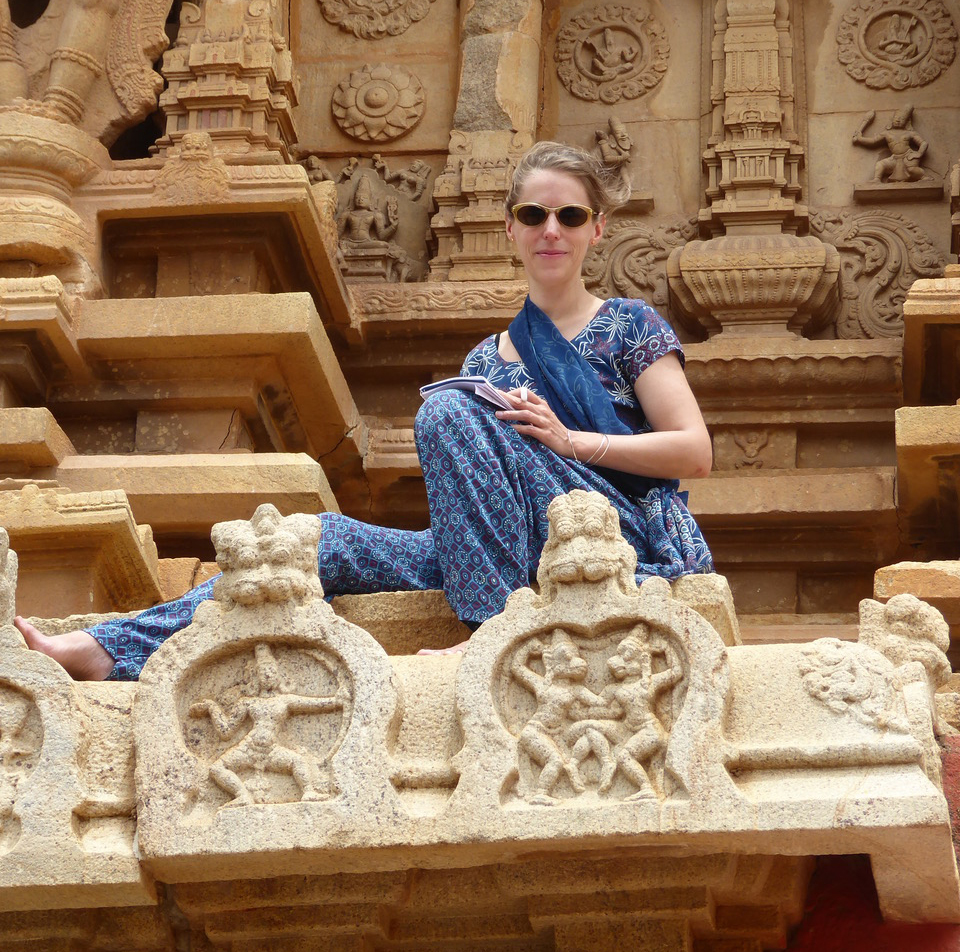
Anna Lise Seastrand, University of Minnesota
Anna Lise Seastrand is Assistant Professor in the Department of Art History at the University of Minnesota. Her research has focused on early modern southeastern India, with a broad interest in the embodied experience of sacred space. Her publications have been motivated by questions about the relationship between text, narrative and image; the nature of portraiture; the depiction and functions of landscape. Her forthcoming first book, Materiality and Imagination in Early Modern Murals, argues that temple mural paintings from southeastern India, 1500-1800, reflect and instantiate a turn to mimetic representation as a key feature of cultural expression in devotional narrative, landscape, and portraiture.

